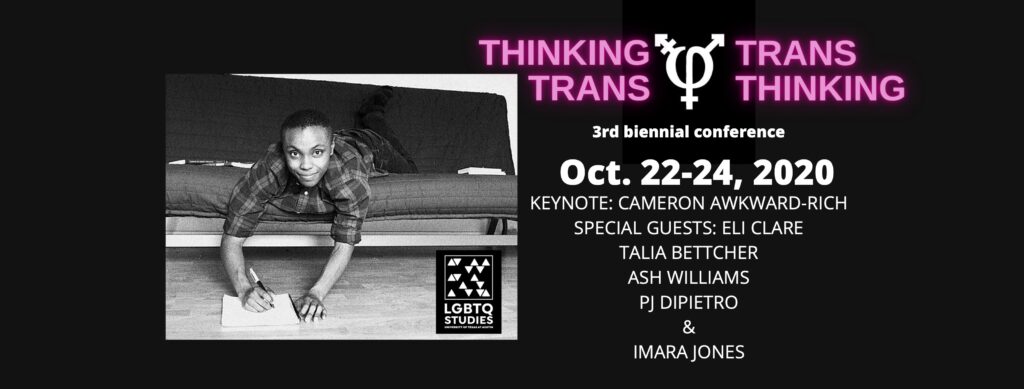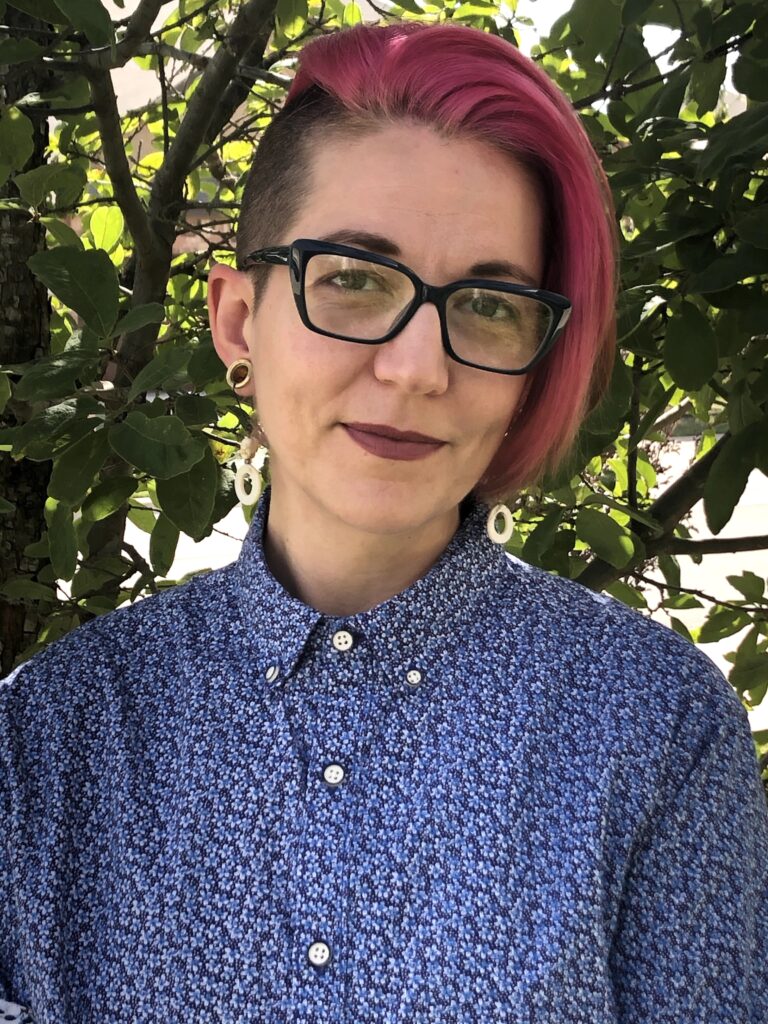by Nick Winges-Yanez
This year has made me truly contemplate the importance of many aspects of a queer crip life that are not well known. For example, the concept of “pods,” or groups of people together, supporting one another in a myriad of ways, as conveyed through an infographic by Mia Mingus. I’ve always had a pod, but it was something I thought of as being specific to an introvert’s life: a foundation of folx whom I depend upon and who depend on me to thrive. Within the crip community, pods are those close knit communities who rely on one another for support because the systems we have are broken and oppressive, rarely providing assistance. Once I started to see my own introvert pod as kin to a crip pod, I started to see the beauty of possibility. This reframing opened up my understanding of pods, and thus, my framing of queer family. Within the queer community, many of us have created a family, closer than our biological family, despite the constant rhetoric hurled at us that blood is stronger than any other connector. Family is, as we in the queer crip communities know, fluid, chosen, mutually supportive. Perhaps, one could say a family of misfits.
I think back on this tumultuous (insert any adjective that has been overused this year) year and remember the difficult choices I’ve made regarding family and time seems to fold up on itself, spread out, skip.
While I have led the Critical Disability Studies program at UT for two years now, I have only recently embraced my own crip identity. I didn’t feel validated enough to claim crip (Schalk, 2013). So I tiptoed around my own experiences as a disability studies scholar, feeling out of place while feeling more at home than anywhere else. A mismatch of experiences.

It’s not just my crip identity that I’ve struggled to own at UT Austin. As a first generation college graduate who entered college in my late 20s, I’ve always felt out of place. My imposter syndrome was triggered this past fall, when I moderated an amazing panel for the Thinking Trans/Trans Thinking conference in October 2020. Part of the Trans Philosophy Project, the panel included three presentations on the topic of transphobia and cisnormativity. The first presenter, Max Thornton, gave a paper called “Brides of Frankenstein: Transmasculinity, T-Theology, and the New TERFism,” the second presenter, A. Cody Kuhn, a current student at UT Austin’s Law School, argued for Removing Biological Essentialist Standards from Law in a presentation called “Divesting Sex,” and April Taylor Clark gave a careful critique of Developmental Trans Psychology. Listening to the panel speakers, my own neurodiversity was pulling me in too many directions, wanting me to go down too many rabbit holes initiated by the ideas and words from each speaker. The words “out of place” were flashing like a neon sign inside my head, complete with a buzz of electricity. I felt out of place with these scholars, who were speaking so beautifully and expansively. Each speaker invited us into a whole new way of thinking trans. Throughout the presentation, I corralled my own bodymind to focus, thinking of crip time and the asynchronicity I experience, with time “speeding up and slowing down, out of sync with the rhythms of normative time” (Thornton, 2019, p. 360).
Presenter Max Thornton has discussed trans/crip time in other work, and suggests it should not be considered wasted and inefficient, but as resistance, citing Rosemarie Garland Thomson’s “misfit” as framing. The “misfit” highlights disability in the dynamic relationship between body and environment while the “gender misfit” highlights the mismatch between “body and world” (p. 360).
Each time I logged into the conference, my feeling “out of place” decreased, while my comfort as misfit grew. Each time, the speakers created a space weaving in and out of linearity, eschewing limitations. I learned about histories, cultures, families that were/are part of trans experiences. The concept of crip time was living and breathing throughout this conference, flowing in and out of conversations and points of interest. When I shared my discomfort with feeling out of place with a colleague and friend, his response was “I had no idea how you identified, but definitely feel a kinship with you”. At this moment, I was embraced as a misfit. This embrace has been a balm as I move through academia, a misfit out of place and time, but in kinship with other misfits.
I hold this kinship when working with folx to create a space uninterested in limitations, full of hope, pride, and justice. How can I create a space that embodies disabled kinship, embracing the misfits, perpetuating pods? I think about students entering the University of Texas at Austin, feeling out of place, slowly trying on “disabled” as something other than a slur or stigma. Students measuring their queer identities against the whole of the queer community, not feeling queer “enough.” Out of place. What could a cultural center, focused on the expansive experiences of disability, provide for those feeling out of place as well as for those wanting to share what they’ve learned? Moderating a panel with the Thinking Trans/Trans Thinking conference was scary and exciting – but what I remember the most was the community. The absolute expanse…of thought, acceptance, creativity, beauty. This space, incorporating accessibility so all were included, not just accommodated. A model for the future and present. A queer crip framework to anchor the work of a disability cultural center at the University of Texas at Austin. What expansiveness would exist in this space that metamorphosizes this feeling of “misfit” into kinship? Only crip time will tell.

Nick Winges-Yanez is the coordinator of the Critical Disabilities Studies program housed at the Texas Center for Disability Studies and an Assistant Professor with the Steve Hicks School of Social Work. She is a queer crip feminist activist-scholar interested in critical discourse analysis and how language, signs, and symbols create and perpetuate our realities. Her work also interrogates histories of disability in relation to sexuality and citizenship.
